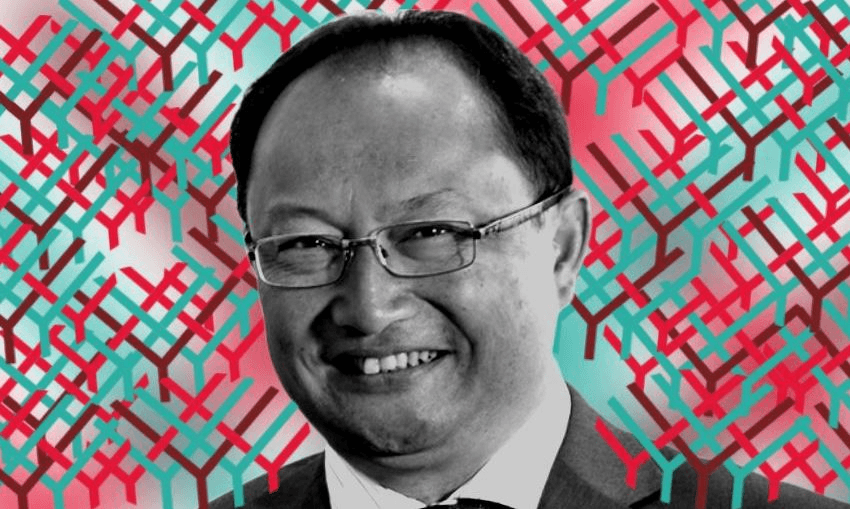Over a year after the office was vacated, a new race relations commissioner has been appointed. What do we know about the new guy, Meng Foon?
A little over a year ago Susan Devoy stood down as race relations commissioner, declaring herself devastated but vindicated over scandals within the Human Rights Commission. Since then the office has sat empty. The appointment process hit a snag late in 2018 when one applicant launched legal action claiming the approach had been unlawful. The challenge to Andrew Little, the justice minister, was ultimately unsuccessful, but the process delayed.
Yesterday, Devoy’s successor was at last announced. Meng Foon, the longtime mayor of Gisborne, will assume the role in August. Holder of the Gisborne office since 2001, he announced earlier this year that six terms was enough, and he would not be seeking re-election. What do we know about him?
He’s the only mayor fluent in te reo Māori
In fact, he’s fluent in four languages: Māori, Seyip, Cantonese and English, and he’s learning Mandarin. His reo has been a huge asset in his 18 years as the Mayor of Gisborne, helping him reach out to the 43% Māori population of the east-coast city.
And Foon is a strong advocate for more people learning te reo, telling Kiwese in a 2015 interview that he “believe[s] Māori should be compulsory in schools.” His degree in Iwi Environmental Management also enhances his connection to the Māori worldview. He said in a statement, “I use this mauri to encompass every aspect of my life.”
He made strides for collaboration in resource management between council and local Māori
As mayor, Foon led New Zealand’s first joint decision-making agreement under the Resource Management Act in 2016 with Ngāti Porou, regarding their taonga and resource consent matters. The introduction of these changes meant wider collaboration in regional and district plans between council and Ngāti Porou. “It would be not only in terms of natural resources, but also would inform where buildings are being built, homes, papa kainga, discharge of water, waste water, storm water, also in farming practices and other business opportunities,” Foon said when the plan was in development stages.
He is a former president of the New Zealand Chinese Association
In 2015 he was elected head of the NZ Chinese Association. A second-generation Chinese New Zealander, he said his focus as the president would be to “ensure the voice of the Chinese community was heard by both central and local government”, reported the Gisborne Herald at the time.
“We want to participate with law makers, our government ministers and its agencies, as well as local governments in the decision-making process,” he said.
He’s an avid sports fan
A member of the New Zealand Rugby League Board and the chair of Gisborne/Tarawhiti Rugby League since 2007, Foon is continuing a high school passion for the game. He told the Sunday Star-Times earlier this year that in high school teams he “didn’t score any tries, but the ball was so close to the line one time”.
He helped to honour Māori battalion soldiers with a Memorial House
Foon has been actively involved in a number of community organisations including Ngā Taonga a nā Tama Toa Trust, which promotes the achievements of the C Company of the Māori Battalion.
In 2014 he worked with Ngāti Porou leader Apirana Mahuika to build the C Company Māori Battalion Memorial House and said to the New Zealand Herald it was one of his biggest achievements. “Uncle [Mahuika] and I started the process. Fortunately the six [veterans] that were alive, five of them came to the opening of the house. It would have been a travesty if we built the C Company house and none of the soldiers were left.”
He’s a singer/songwriter
Foon has released an album, Tu Mai, consisting of Māori waiata, and various media reports say he’s got great pipes. “Foon can sing like a Viennese choirboy in Māori,” said the New Zealand Herald in 2010, and Te Ara has a video of one of Foon’s own compositions being performed by a school kapa haka group.
Response to the appointment
Foon told RNZ Morning Report yesterday that he wished to “continue the good work of past commissioners”. Speaking from London, he said he wanted to see New Zealanders “tell all of our stories so we can understand more of each other’s ethnicities, our cultures, the way that we do things”. He said wider economic and social issues of which “race relations are only part”. New Zealand needed, for example, to “address poverty and lift salaries of all those people who are in need”.
The incoming commissioner will work alongside Paul Hunt, who was appointed chief human rights commissioner after a shakeup at the Human Rights Commission following a review into the handling of sexual harassment claims that revealed serious culture problems and ill-feeling among staff at the organisation. Foon will have his work cut out for him to get the race relations commissioner’s office back on firm footing.
Foon’s appointment hasn’t been received well by all. The Māori Council executive director, Matthew Tukaki, yesterday told Newsroom it was a “missed opportunity”. “They should be looking for someone of Māori origin and Māori background,” he said.
Justice Minister Andrew Little said Foon was “an exciting appointment” to the role. “We are all looking forward to working with Meng to help create the fairer, more harmonious society so many people have been calling for, particularly in the wake of the terrible events in Christchurch.”

